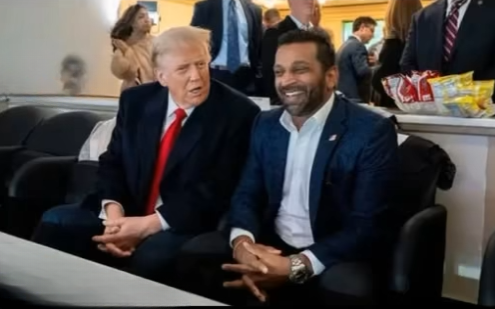For years, questions have surrounded the way federal agencies handled the investigation of financier Jeffrey Epstein and his close associates. Now, in what lawmakers are calling a significant step toward government transparency, the U.S. Department of Justice (DOJ) has agreed to deliver long-awaited files to the House Oversight Committee. The decision follows months of congressional pressure, a looming subpoena deadline, and heightened public demand for answers.
House Oversight Committee Chairman James Comer (R-KY) confirmed this week that the Justice Department will begin turning over the first batch of documents on Friday. The files are expected to include extensive records on Epstein, his longtime associate Ghislaine Maxwell, and other materials tied to previous investigations.
While many details remain under seal due to privacy protections and legal requirements, the release signals a broader commitment to government accountability. For both lawmakers and the American public, this moment represents a long-awaited opportunity to review how such a high-profile case was handled, what decisions were made behind closed doors, and why certain outcomes continue to raise questions to this day.
Why These Files Matter
Few cases in recent memory have drawn as much scrutiny as that of Jeffrey Epstein. His connections to high-profile individuals across politics, business, and entertainment sparked years of speculation, debate, and public concern. The new records may not resolve every lingering question, but they are likely to shed light on several key areas:
-
The DOJ’s role in earlier agreements – One of the most controversial chapters in the Epstein saga was a 2007 agreement with federal prosecutors in Florida that allowed him to avoid a lengthy prison sentence. Lawmakers want to know how that agreement was reached and whether it reflected a failure of oversight.
-
The treatment of witnesses and victims – Committee members have asked the DOJ to provide documents showing how victims and their families were informed and protected during past legal proceedings.
-
The 2019 federal investigation and custody review – Epstein’s death in a New York detention facility in 2019 was officially ruled a suicide. However, the circumstances surrounding the event sparked ongoing debate. Lawmakers hope that additional documents will clarify whether any procedural lapses occurred.
-
The prosecution of Ghislaine Maxwell – Maxwell, convicted in 2021, remains a central figure in this case. Lawmakers want access to DOJ communications surrounding her trial and conviction, as well as information that could provide a fuller picture of her role.
-
Potential systemic failures – Beyond the specifics of the case, Congress is examining whether federal institutions acted with the transparency, diligence, and urgency that the American people expect.
Comer’s Statement on Transparency
Chairman Comer emphasized that the committee’s efforts are not about partisan gain but about ensuring transparency in a case that has tested public trust in institutions.
“The Department of Justice has informed us that it will begin to provide records this week,” Comer said in a press release. He added that the volume of documents is enormous, meaning the process of production and review will take time.
Importantly, he also clarified that sensitive material—such as identifying information about victims—will be redacted to comply with federal law. The committee has formally requested that unnecessary redactions be avoided so that the public can gain as much clarity as possible without compromising individual privacy.
Comer praised what he described as a renewed “commitment to transparency” from the DOJ under Attorney General Pam Bondi, noting that the American public deserves access to information about how the case was handled at the highest levels.
From Deadlines to Negotiations
Originally, the House Oversight Committee set a firm deadline of August 19 for the Justice Department to comply with its subpoena. But as Comer acknowledged, the sheer volume of material—spanning multiple years, multiple investigations, and multiple agencies—made that timeline impossible.
“You can imagine how many documents there are,” Comer told reporters. He described the ongoing process as a “good faith effort” between Congress and DOJ, signaling that—for now—the committee is satisfied with the department’s cooperation.
This shift from confrontation to collaboration is notable. In recent years, congressional committees have often struggled to obtain documents from executive branch agencies, with disputes frequently ending up in federal court. The DOJ’s agreement to begin producing the requested files without further legal escalation is being viewed as a positive development.
A Bipartisan Push for Answers
Although many headlines have focused on partisan divides in Washington, the demand for Epstein-related records has united lawmakers across the aisle. Both Republicans and Democrats have expressed frustration over what they view as slow or incomplete responses from federal agencies.
For example, Senate Majority Leader Chuck Schumer (D-NY) has accused previous administrations of withholding information. He even warned that legal action might be necessary to secure the release of certain documents. That bipartisan chorus has amplified pressure on the DOJ to act.
Subpoenas and Depositions
The Oversight Committee has already authorized a wide-ranging series of subpoenas. These include requests for testimony from former attorneys general, former FBI directors, and other officials who played a role in decisions surrounding the case.
Former Attorney General Bill Barr, for instance, testified in a closed-door deposition just last week. Several more interviews are scheduled, including with well-known political figures. These depositions reflect Congress’s determination to build a comprehensive record, not just of Epstein’s activities but of how federal institutions responded.
Lawmakers have made it clear that they are not seeking sensational headlines but rather a factual understanding of what went wrong—and how to prevent similar failures in the future.
Addressing Public Suspicion
The DOJ has consistently maintained that its investigation into Epstein and Maxwell was thorough, exhaustive, and not influenced by outside pressures. Officials insist there is no hidden “list” of powerful figures, nor evidence of blackmail.
Yet skepticism persists. Public polling has repeatedly shown that many Americans remain unconvinced by official explanations, particularly surrounding Epstein’s death in custody. The release of documents to Congress—and potentially, eventually, to the public—could help address some of that lingering mistrust.
The Role of Attorney General Pam Bondi
Attorney General Pam Bondi, who took over leadership of the DOJ under the Trump administration, has sought to emphasize transparency. According to Comer, she has been personally engaged in the effort to produce the requested records.
Bondi also tasked her deputy, Todd Blanche, with conducting interviews—including with Ghislaine Maxwell in prison—in hopes of uncovering additional information. While it is unclear whether those efforts revealed new insights, lawmakers have welcomed the DOJ’s willingness to pursue every possible avenue.
What Happens Next
The process of reviewing and releasing the requested documents is expected to take months, not weeks. Every record must be carefully examined to ensure compliance with privacy laws and to prevent the disclosure of sensitive or irrelevant information.
The Oversight Committee, meanwhile, has pledged to keep the public informed about progress. Its members are expected to release periodic updates and, where appropriate, summaries of what they learn from the materials.
For the American public, the next stage of this story is less about sensational revelations and more about institutional accountability. Will the documents confirm that federal agencies did everything they could? Or will they reveal missed opportunities, poor decision-making, or undue influence?
Only time will tell, but lawmakers stress that this process is about lessons for the future as much as answers about the past.
Why Transparency Matters
Cases like this strike at the heart of public trust. When high-profile individuals appear to receive special treatment—or when government agencies are perceived as withholding information—faith in democratic institutions erodes.
By pursuing this investigation, Congress is signaling that accountability matters, regardless of the personalities involved. Transparency in government is not optional; it is a cornerstone of the democratic process.
As Chairman Comer explained, “The American people have a right to know how this case was handled.” His words reflect a broader principle: justice must not only be done but must be seen to be done.
Conclusion
The DOJ’s agreement to turn over Epstein-related records to the House Oversight Committee marks a pivotal moment in a saga that has stretched on for years. For Congress, it is a chance to finally obtain clarity. For the DOJ, it is an opportunity to demonstrate good faith and restore public confidence.
Most importantly, for the American people, it is a reminder that government must always be accountable to those it serves. Whether the forthcoming documents ultimately confirm existing narratives or introduce new revelations, their release will play a vital role in answering questions that have lingered for far too long.



